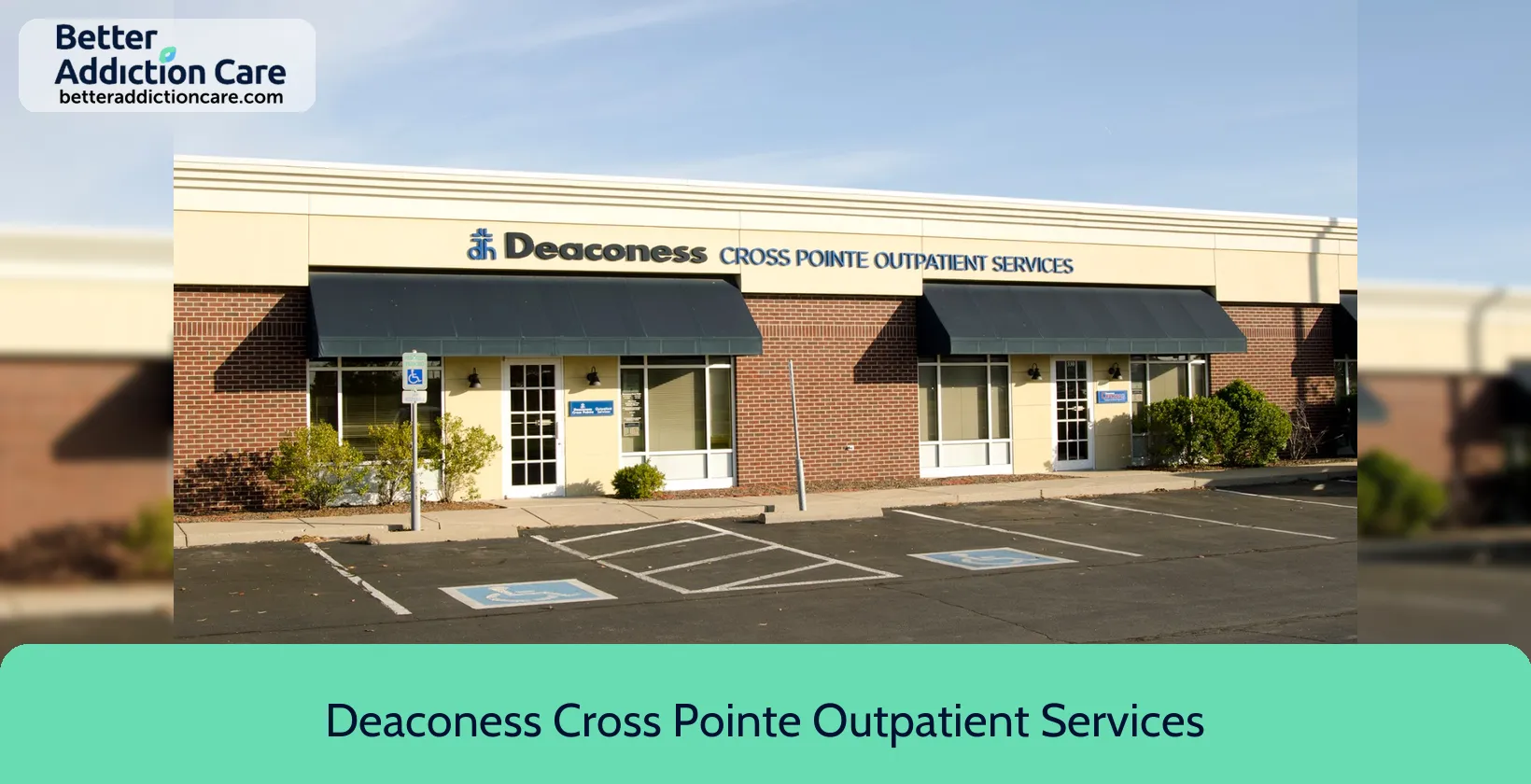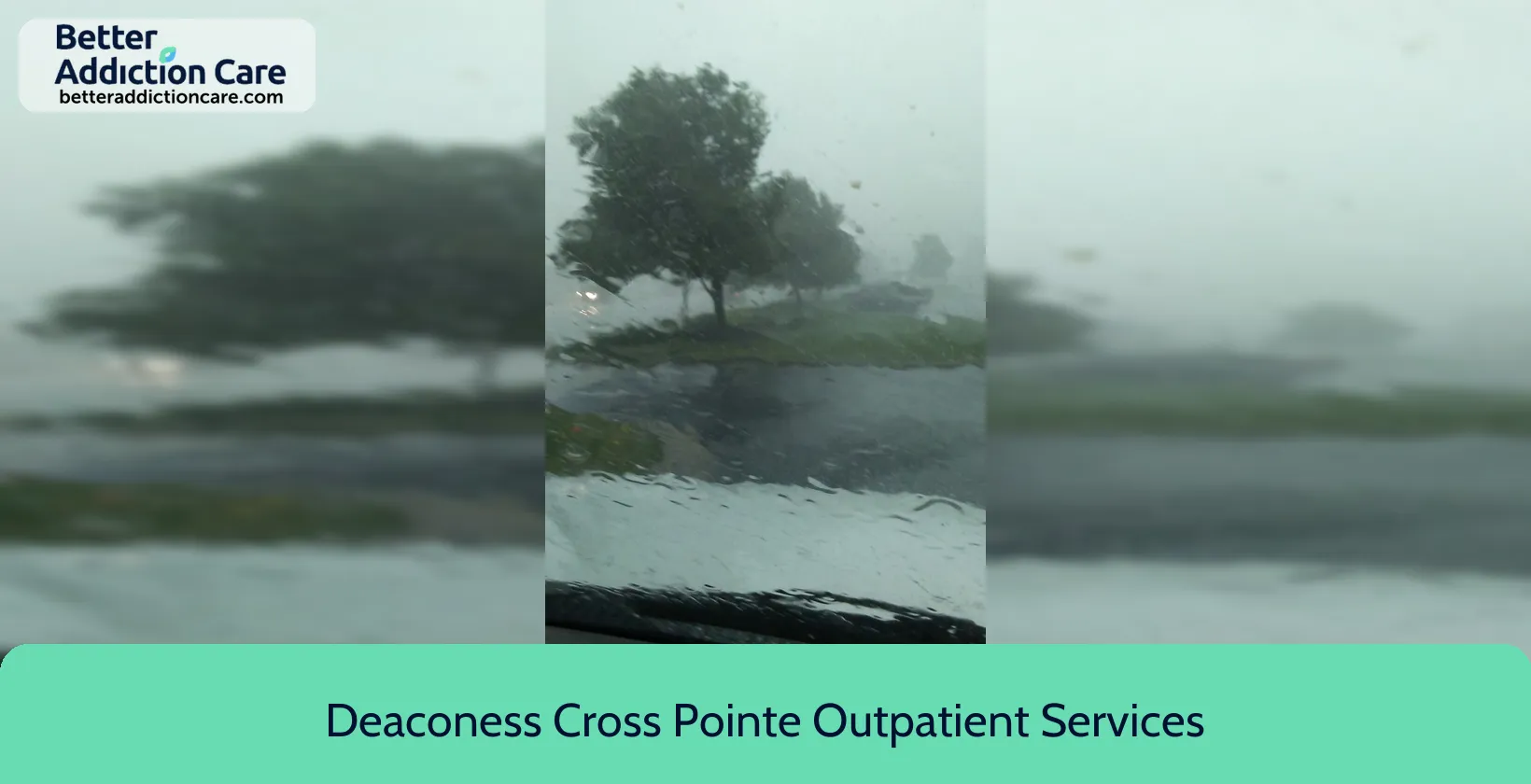Deaconess Cross Pointe Outpatient Services
Overview
Deaconess Cross Pointe Outpatient Services is a mental health treatment center for people seeking treatment near Vanderburgh County. As part of their treatment modalities for recovery, Deaconess Cross Pointe Outpatient Services provides individual psychotherapy, couples/family therapy, and cognitive behavioral therapy during treatment. Deaconess Cross Pointe Outpatient Services is located in Evansville, Indiana, accepting cash or self-payment for treatment.
Deaconess Cross Pointe Outpatient Services at a Glance
Payment Options
- Cash or self-payment
- Medicaid
- Medicare
- State-financed health insurance plan other than Medicaid
- Private health insurance
Assessments
- Screening for tobacco use
- Comprehensive mental health assessment
- Comprehensive substance use assessment
- Interim services for clients
- Screening for mental disorders
Age Groups
- Adolescents
- Young adults
- Children/adolescents
- Adults
- Seniors
Ancillary Services
- Chronic disease/illness management
- Family psychoeducation
- Illness management and recovery
- Suicide prevention services
- Mental health services
Highlights About Deaconess Cross Pointe Outpatient Services
7.40/10
With an overall rating of 7.40/10, this facility has following balanced range of services. Alcohol Rehabilitation: 8.00/10, Drug Rehab and Detox: 6.92/10, Insurance and Payments: 6.00/10, Treatment Options: 8.67/10.-
Treatment Options 8.67
-
Alcohol Rehabilitation 8.00
-
Drug Rehab and Detox 6.92
-
Insurance and Payments 6.00
Accreditations
State department of health:

Government agencies issue State Licenses, which grant rehabilitation organizations permission to conduct their operations lawfully within specific geographic regions. Licenses needed to operate are typically determined by the type of rehabilitation program offered by the facility and its physical location.
Healthcare Facilities Accreditation Program (HFAP):
HFAP is a non-profit that accredits healthcare facilities, including hospitals and nursing homes, to ensure they meet quality and safety standards. The accreditation process involves a review of the facility's policies, procedures and practices with a focus on patient care, safety and satisfaction. The goal is to improve quality and promote patient confidence.
Treatment At Deaconess Cross Pointe Outpatient Services
Treatment Conditions
- Alcoholism
- Mental health treatment
- Substance use treatment
- Co-occurring Disorders
Care Levels
- Partial Hospitalization Program
- Outpatient
- Outpatient detoxification
- Outpatient methadone/buprenorphine or naltrexone treatment
- Outpatient day treatment or partial hospitalization
Treatment Modalities
- Individual psychotherapy
- Couples/family therapy
- Cognitive behavioral therapy
- Dialectical behavior therapy
- Integrated Mental and Substance Use Disorder treatment
Ancillary Services
Languages
- Sign language services for the deaf and hard of hearing
Additional Services
- Pharmacotherapies administered during treatment
- Discharge Planning
- Drug or alcohol urine screening
Special Programs
- Clients with co-occurring mental and substance use disorders
- Clients who have experienced trauma
Get Help Now
Common Questions About Deaconess Cross Pointe Outpatient Services
Contact Information
Other Facilities in Evansville

6.88

6.91

6.79

6.85

6.62
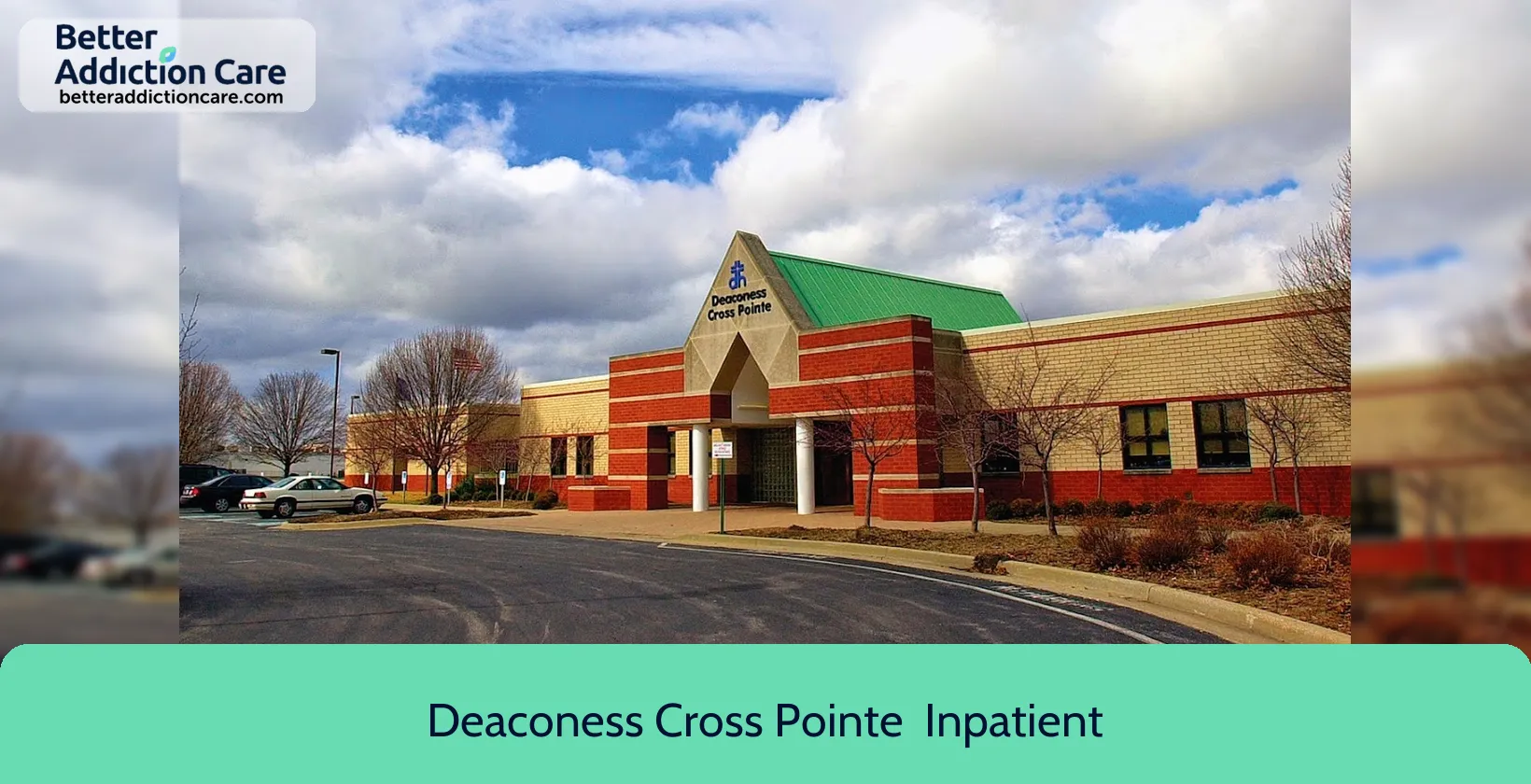
6.74
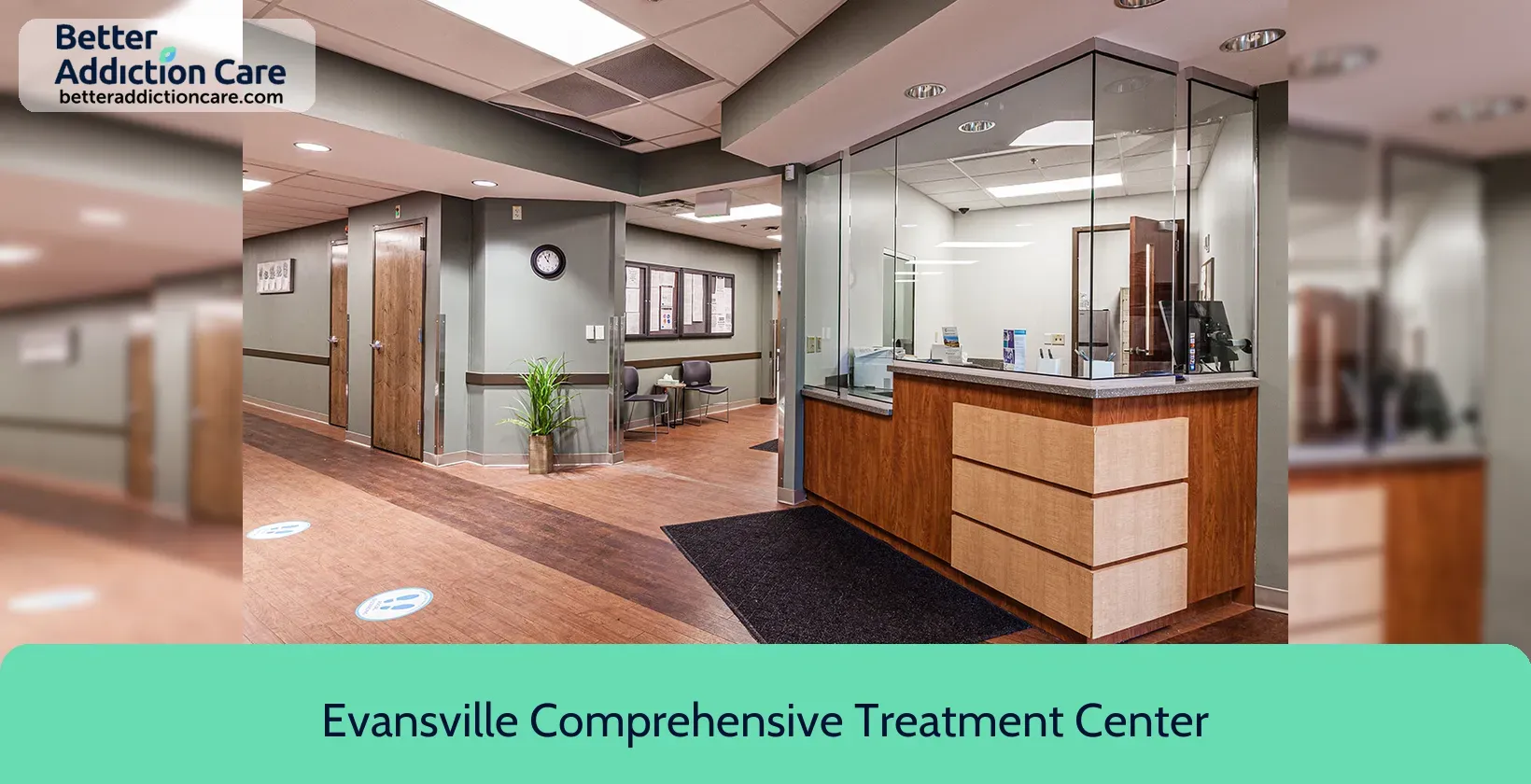
7.28
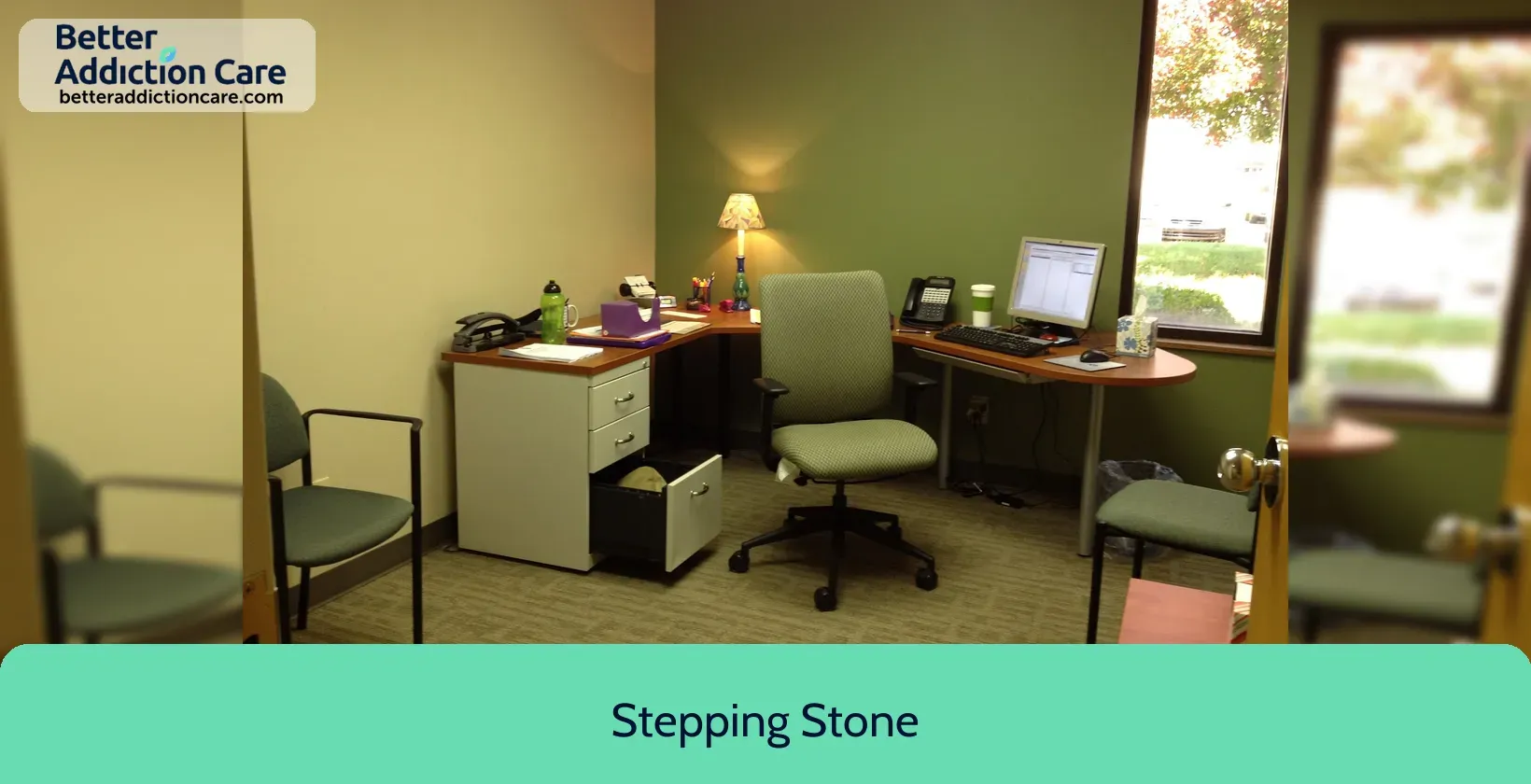
7.38
DISCLAIMER: The facility name, logo and brand are the property and registered trademarks of Stepping Stone, and are being used for identification and informational purposes only. Use of these names, logos and brands shall not imply endorsement. BetterAddictionCare.com is not affiliated with or sponsored by Stepping Stone.
